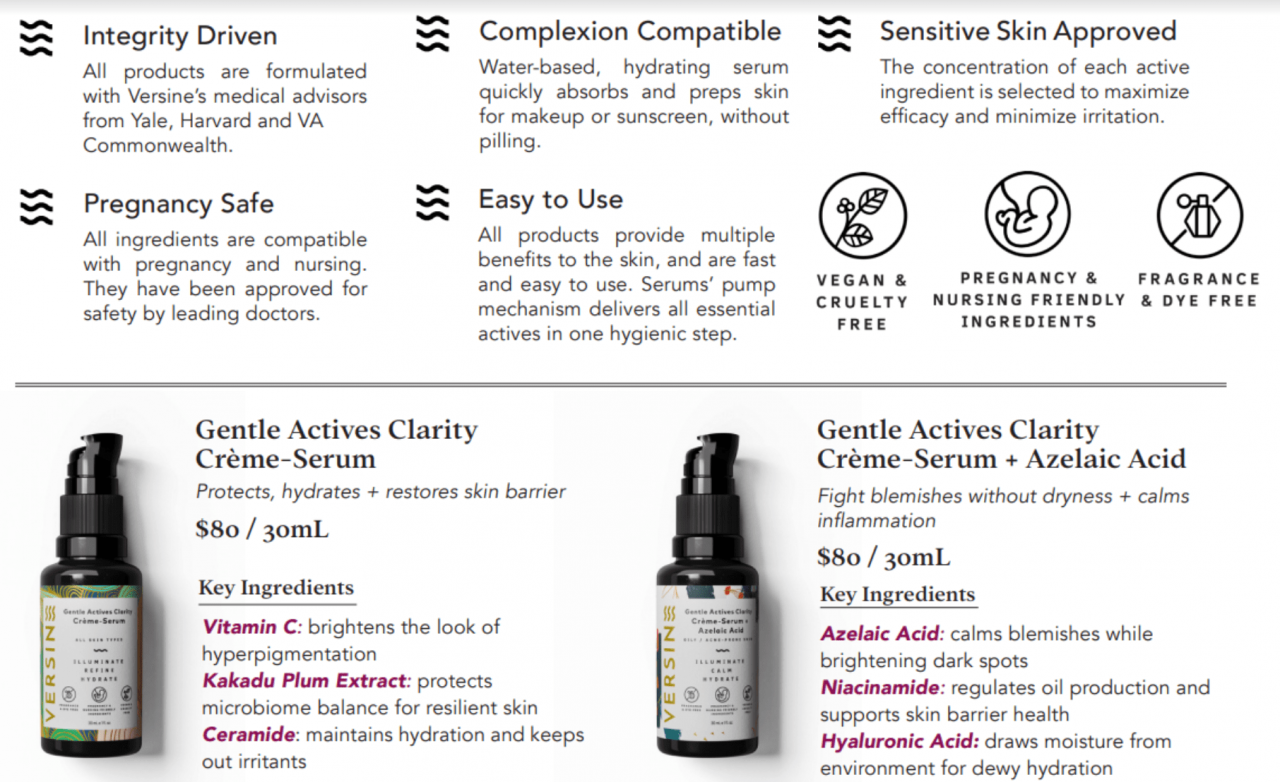Skincare myths have been circulating for ages, leaving us confused and unsure about what’s best for our skin. From the myth that oily skin is always bad to the belief that all parabens are harmful, it’s time to debunk these misconceptions and uncover the truth.
Embark on a journey of skincare enlightenment as we explore the most prevalent skincare myths and their scientific debunking.
Common Skincare Myths
In the vast world of skincare, there’s no shortage of information and advice floating around. However, not everything you hear or read is true. Many skincare myths and misconceptions have persisted over the years, leading people to make skincare choices that may not be in their best interests.
To help you navigate the skincare landscape, let’s debunk some of the most prevalent skincare myths and provide you with evidence-based information to guide your skincare routine.
Myth: Oily skin doesn’t need moisturizing
Truth:All skin types, including oily skin, need to be moisturized. While oily skin produces more sebum than other skin types, it can still become dehydrated. Using a lightweight, oil-free moisturizer can help balance the skin’s moisture levels and prevent it from becoming overly dry.
If you’re on a budget, check out Trader Joe’s skincare dupes . These affordable products offer similar benefits to their high-end counterparts without breaking the bank. And for those seeking a natural, tinted skincare option, Daybird tinted skincare is worth exploring.
Its lightweight formula provides sheer coverage while nourishing your skin with botanical extracts.
Myth: Exfoliating every day is good for your skin
Truth:Over-exfoliating can damage the skin’s natural protective barrier, leading to dryness, irritation, and increased sensitivity. Aim to exfoliate no more than 1-2 times per week, using a gentle scrub that is appropriate for your skin type.
Myth: Popping pimples will help them heal faster
Truth:Popping pimples can actually worsen them by introducing bacteria into the skin and causing inflammation. It can also lead to scarring. Instead, use a gentle cleanser and apply a spot treatment to help reduce inflammation and promote healing.
Debunking Myths About Skin Types
Skincare regimens should be customized to meet the specific needs of each individual’s skin type. Understanding the different skin types and their unique characteristics is essential for effective skincare. This article aims to debunk common myths surrounding skin types, including the misconception that oily skin is always undesirable.
Oily Skin
Contrary to popular belief, oily skin is not inherently bad. It simply indicates that the sebaceous glands produce more oil than other skin types. This oil, known as sebum, plays a crucial role in maintaining skin’s natural moisture barrier and protecting it from external aggressors.
However, excessive oil production can lead to clogged pores and acne breakouts.
Dry Skin
Dry skin is characterized by a lack of moisture and oil. This can result from various factors, including genetics, environmental conditions, and certain medical conditions. Dry skin can feel tight, flaky, and rough, and it may be more prone to wrinkles and fine lines.
Combination Skin, Skincare myths
Combination skin is a combination of oily and dry skin. Typically, the T-zone (forehead, nose, and chin) tends to be oily, while the cheeks and jawline are dry. Combination skin requires a skincare routine that addresses both the oily and dry areas.
Sensitive Skin
Sensitive skin is easily irritated and reacts negatively to certain skincare products or environmental triggers. It may exhibit symptoms such as redness, itching, burning, or stinging. Sensitive skin requires gentle, fragrance-free products that do not contain harsh ingredients.
Normal Skin
Normal skin is well-balanced, neither too oily nor too dry. It has a smooth, even texture and is less prone to breakouts and other skin problems. Normal skin typically responds well to most skincare products.
Understanding Ingredients and Their Effects
Knowing what’s in your skincare products is crucial for making informed decisions about what you put on your skin. By understanding the ingredients and their effects, you can choose products that are right for your skin type and concerns.
Common Myths About Specific Ingredients
There are many myths and misconceptions about skincare ingredients. One common myth is that all parabens are harmful. Parabens are a type of preservative that is used to prevent the growth of bacteria and mold in skincare products. While some parabens have been linked to certain health concerns, most parabens are safe for use in skincare products.
Another common myth is that natural ingredients are always better than synthetic ingredients. While it’s true that some natural ingredients can be beneficial for the skin, not all natural ingredients are created equal. Some natural ingredients can be irritating or even harmful to the skin.
For those struggling with hyperpigmentation, Korean skincare offers an array of solutions to brighten and even out skin tone. If redness is your concern, look no further than the soothing formulas of Korean skincare for redness . Explore the Trader Joe’s skincare dupes to find affordable alternatives to your favorite high-end products.
Finally, discover the convenience and natural glow of daybird tinted skincare that combines makeup and skincare in one.
Synthetic ingredients, on the other hand, are often more stable and effective than natural ingredients.
Looking to fade hyperpigmentation? Consider incorporating Korean skincare into your routine. With its focus on brightening and evening out skin tone, it’s a great option for those struggling with dark spots. And for redness, Korean skincare has got you covered too! Korean skincare is renowned for its calming and soothing ingredients, making it ideal for sensitive skin prone to redness and irritation.
The Role of Diet and Lifestyle in Skincare: Skincare Myths
Your skin is the largest organ in your body, and it reflects your overall health. What you eat and how you live can have a big impact on the appearance of your skin. Eating a healthy diet and getting regular exercise can help to keep your skin looking its best.
The Connection Between Diet and Skin Health
The foods you eat can have a significant impact on the health of your skin. Eating a diet rich in fruits, vegetables, and whole grains can help to provide your skin with the nutrients it needs to stay healthy. These foods are also high in antioxidants, which can help to protect your skin from damage caused by free radicals.
In contrast, eating a diet high in processed foods, sugary drinks, and unhealthy fats can contribute to skin problems such as acne, wrinkles, and dryness. These foods can also lead to inflammation, which can further damage the skin.
Myths About Foods That Are Supposedly Good or Bad for the Skin
There are a lot of myths about foods that are supposedly good or bad for the skin. Some of these myths are based on anecdotal evidence, while others are simply not true. Here are a few of the most common myths about food and skin health:
- Myth:Eating chocolate causes acne. Fact:There is no scientific evidence to support this claim. In fact, some studies have even shown that chocolate may have some benefits for the skin.
- Myth:Drinking milk causes acne. Fact:While some people may be allergic to milk, there is no evidence to suggest that drinking milk causes acne in general.
- Myth:Eating oily foods makes your skin oily. Fact:The type of food you eat does not affect the oiliness of your skin. Oily skin is caused by genetics and hormones.
Advanced Skincare Techniques and Technologies
As the skincare industry continues to evolve, so do the techniques and technologies available to enhance the appearance and health of our skin. From microneedling to laser treatments, these advanced options offer a range of benefits, but they also come with their own set of myths and misconceptions.
Microneedling
Microneedling is a minimally invasive procedure that involves creating tiny punctures in the skin using fine needles. This stimulates the body’s natural healing response, which promotes the production of collagen and elastin, resulting in improved skin texture, reduced wrinkles, and diminished scarring.
Myth:Microneedling is painful and can cause significant downtime.
Reality:While some discomfort may be experienced during the procedure, it is generally well-tolerated and requires minimal downtime. Most people can resume their normal activities within a few days.
Laser Treatments
Laser treatments use concentrated beams of light to target specific skin concerns, such as wrinkles, pigmentation, and hair removal. They work by heating the targeted tissue, which stimulates collagen production and destroys unwanted cells.
Myth:Laser treatments are only effective for certain skin types.
Reality:Advances in laser technology have made them suitable for a wide range of skin types and tones. However, it is important to consult with a qualified dermatologist to determine the most appropriate treatment option for your specific needs.
Outcome Summary
In the realm of skincare, it’s crucial to separate fact from fiction. By debunking common myths, we empower ourselves to make informed decisions about our skincare routines. Remember, healthy skin is not a destination but a journey, and understanding the truth behind skincare misconceptions is the first step towards achieving a radiant, confident complexion.
FAQs
Is it true that oily skin is always bad?
No, oily skin can be beneficial as it helps protect the skin from environmental damage and premature aging.
Are all parabens harmful?
No, not all parabens are harmful. Some parabens are safe for use in skincare products and have been approved by regulatory agencies.
Can certain foods improve my skin health?
Yes, a balanced diet rich in fruits, vegetables, and whole grains can support skin health by providing essential nutrients.





Leave a Reply